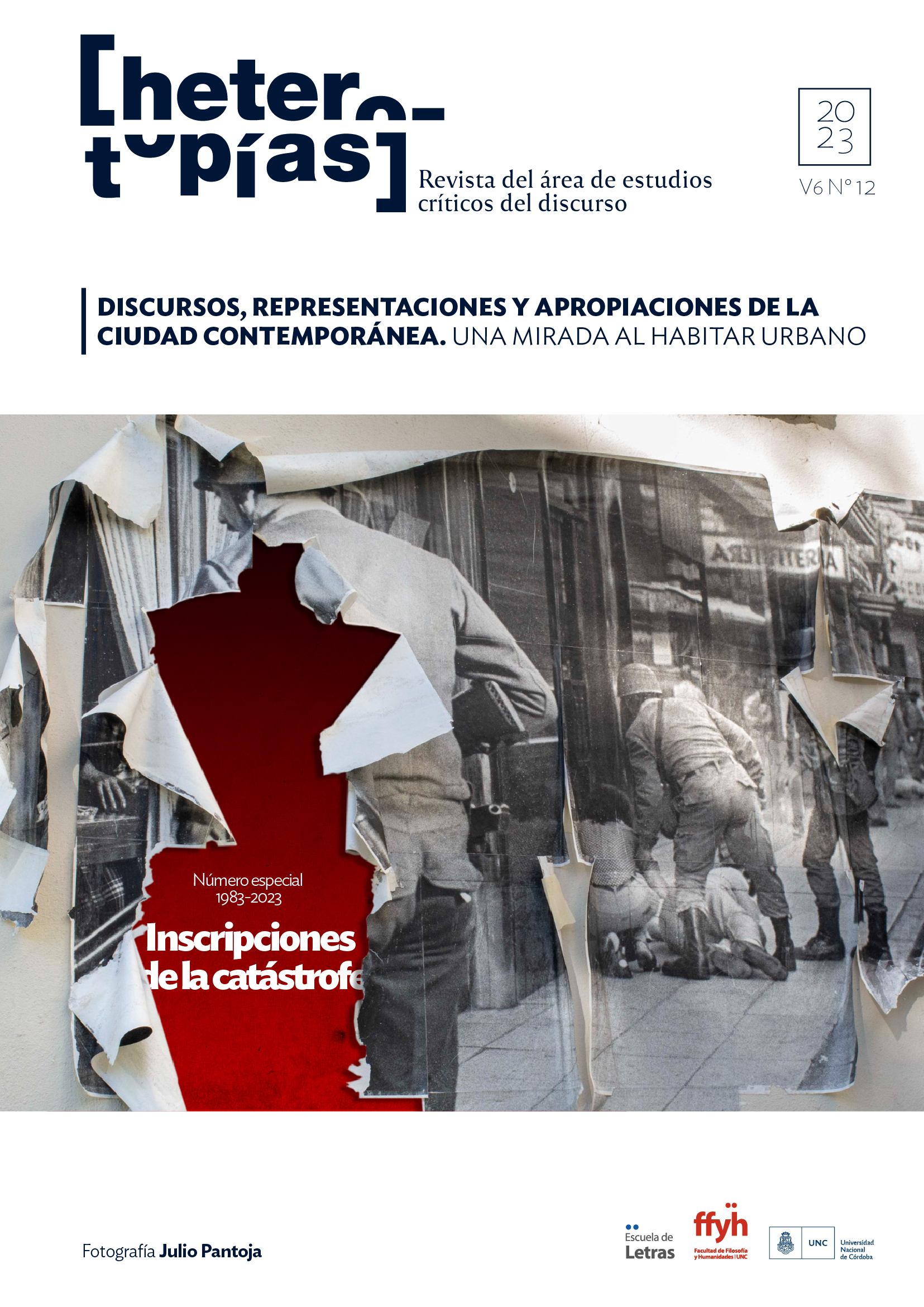Social housing and governmentality in Latin America. Homeownership as a mode of political subjectivation
Main Article Content
Abstract
This article aims to contribute to the debate that has been going on for some years
in the social sciences on how neo-liberal governmentality affects subjectivities. He is
interested in the links between access to property and the political production of urban
spaces in Latin America, considering this process as one of the effects of this subjectivation.
Through a study of the political rationality of the housing subsidy program
developed in Ecuador since 1998 and a survey carried out in Quito among a group of
women who have benefited from it, it seeks to shed light on how this means of access to
housing has a concrete effect on the transformation of subjectivities, leading to a
weakening of the "general will" of individuals. It shows that this can be achieved through
the objectification of the "beneficiaries", individual responsibility, the standardization of the
relationship to housing and the depoliticization of forms of social regulation.
Downloads
Article Details

This work is licensed under a Creative Commons Attribution-NonCommercial-ShareAlike 4.0 International License.
Those authors who have publications with this journal, accept the following terms: Those authors who have publications with this journal, accept the following terms:
a. The authors will keep their copyright and guarantee to the journal the right of first publication of their work, which will be simultaneously subject to the Creative Commons Attribution - Non-Commercial - Share Alike (by-nc-sa) Attribution License; no commercial use of the original work or any derivative works is allowed, the distribution of which must be done with a license equal to the one that regulates the original work.
b. Authors may adopt other non-exclusive license agreements for the distribution of the published version of the work (e.g., deposit it in an institutional telematic archive or publish it in a monographic volume) provided that the initial publication in this journal is indicated.
c. Authors are allowed and recommended to disseminate their work through the Internet (e.g. in institutional telematic archives or on their website) before and during the submission process, which may lead to interesting exchanges and increase the number of citations of the published work. (See The effect of open access).
How to Cite
References
BID (1997) Programa de apoyo al sector vivienda (EC-1038). Washington D. C.: BID.
Brown, W. (2006). American Nightmare: Neoliberalism, Neoconservatism, and De-Democratization.
Political Theory, 34(6), 690-714. Recuperado de
https://doi.org/10.1177/0090591706293016
Brown, W. (2004). Néo-libéralisme et fin de la démocratie. Vacarme, 29, 86-93. Recuperado de
https://doi.org/10.3917/vaca.029.0086
Castells, M. (1972). La question urbaine. Paris: Maspero.
Dardot, P. (2011). La subjectivation à l'épreuve de la partition individuel-collectif. Revue du
MAUSS, 38, 235-258. Recuperado de https://doi.org/10.3917/rdm.038.0235
Dardot, P. & Laval, C. (2016) Ce cauchemar qui n’en finit pas. Comment le néolibéralisme défait la
démocratie. Paris: La Découverte.
De Soto, H. (1987). El otro sendero : La revolución informal. Buenos Aires: Sudamericana.
Duhau L., E. (1993) La urbanización en América Latina: institucionalización o pactos sociales implícitos ? En Antonio Azuela (ed.) La urbanización popular y el orden jurídico en América latina (pp. 19-30). Mexico: UNAM.
Foucault, M. (2014). Subjectivité et vérité. Cours au collège de France 1980-1981, Paris: Seuil/Gallimard.
Foucault, M. (2004). Naissance de la biopolitique. Cours au Collège de France 1978-1979. Paris: Seuil/Gallimard.
Foucault, M. (1975). Surveiller et punir. Paris: Gallimard.
Besoain, C., & Cornejo, M. (2015). Vivienda Social y Subjetivación Urbana En Santiago de Chile: Espacio Privado, Repliegue Presentista y Añoranza. Psicoperspectivas 14(2), 16–27.
Ferguson, J., & Gupta, A. (2002). Spatializing States: Toward an Ethnography of Neoliberal Governmentality. American Ethnologist, 29(4), 981–1002. Recuperado de http://www.jstor.org/stable/3805165
Lazzarrato, M. (2011). La fabrique de l’homme endetté. Essai sur la condition néolibérale. Paris: Éditions Amsterdam
Morange, M., Pilo’, F., & Spire, A. (2018). Experiencing regularisation in Accra, Cape Town and Rio de Janeiro. City, 22(5‐6), 685‐702. Recuperado de https://doi.org/10.1080/13604813.2018.1549834
Morange, M. & Quentin, A. (2017). Mise en ordre néolibérale de l’espace et fabrication de « bons commerçants » au Cap et Quito : le commerce « de moins en moins dans la rue ». Métropoles 21. Recuperado de https://doi.org/10.4000/metropoles.5522
Planel, S.& Bridonneau, M. (2017). (Re)making politics in a new urban Ethiopia: an empirical reading of the right to the city in Addis Ababa’s condominiums. Journal of Eastern African Studies, Volume 11(1), 24–45.
Quentin, A. (2016). La politique du logement en Équateur : de la bonne gouvernance au Buen Vivir, un tournant postnéolibéral ? Cahiers des Amériques latines 83, 53-73.
Quentin, A. (2012). L'institutionnalisation du rôle des ONG au sein des politiques publiques financées par l'aide internationale : l'ambigüité de la participation de la société civile. Le cas de la politique d'habitat en Équateur. Mondes en développement, 159, 29-44.
Recuperado de https://doi.org/10.3917/med.159.0029
Quentin, A. (2009) Politiques de l’habitat, gouvernance urbaine et justice sociale : le cas de l’Équateur. (Tesis de doctorado) Paris: EHESS.
Sauvêtre, P. (2013) Crise de gouvernementalité et généalogie de l'État aux XXe et XXIe siècles. Recherche historico-philosophique sur les usages de la raison politique. (Tesis de doctorado) Paris: Institut d'Études Politiques de Paris.
Wellington da Silva, C. (2016). Minha Casa, Suas Regras, Meus Projetos: Gestão, Disciplina e Resistências Nos Condomínios Populares Do PAC e MCMV No Rio de Janeiro. (Tesis de Doctorado) Rio de Janeiro: Universidade do Estado do Rio de Janeiro.
